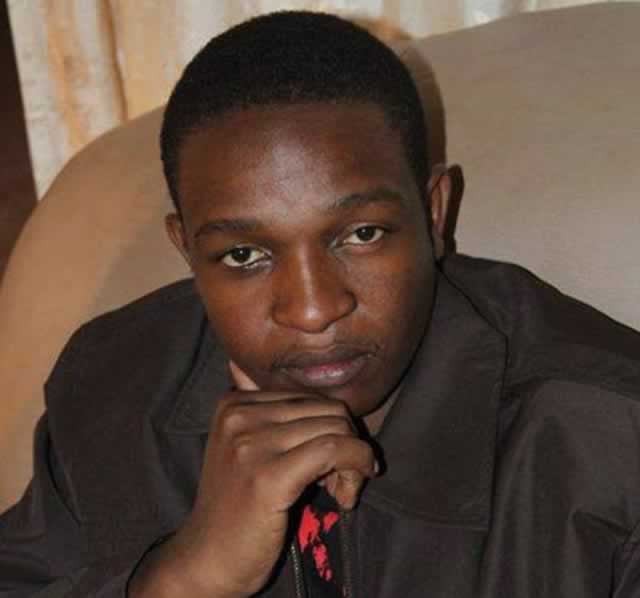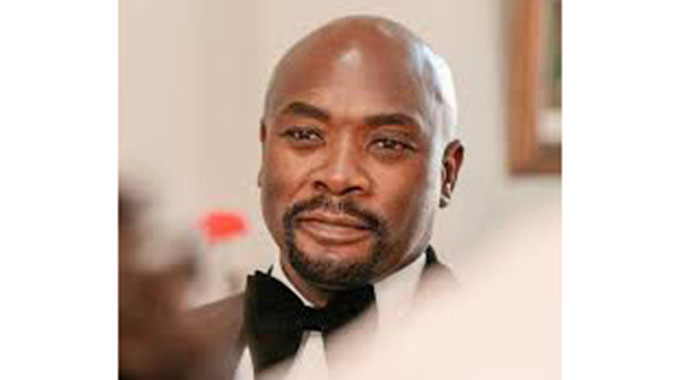New hope in ‘The Ties that Bind’

Beaven Tapureta Arts Correspondent
As governments and most learned scientists and perhaps faith healers grapple for a cure for the puzzling HIV and AIDS, “The Ties that Bind” is a novel that examines and offers new perspectives to the disease through a well-spelt story.
“The Ties that Bind” (New Media Heritage, Harare) is Phillip Chidavaenzi’s forthcoming novel, a sequel to his 2007 NAMA award winning novel “The Haunted Trail” (Longman Zimbabwe, 2006).
The sequel is not a sci-fiction rendition full of rabble-raising details but a close-to-life story told in sincere, uplifting and fresh yet thrilling tone concerning AIDS. It answers AIDS’ baffling “after-the-act” question. So what?
Chidavaenzi has, in captivating detail, made the sequel stand independent of its forerunner “The Haunted Trail” which is pitched in an era when the country was under siege of socio-economic difficulties and closely befriending all this was the deadly disease HIV & AIDS.
In “The Haunted Trail”, Chiedza, living in Mutare with family, has a promising future in accounting. Her dream to go to university comes true but she takes the wrong turn. While her family urges her to learn at a nearer university in Mutare she opts for the every-student’s-dream University of Zimbabwe where she falls in love with one HIV-positive, corrupt banker named Michael Denga.
Michael later commits suicide after infecting Chiedza with the disease and being also arrested for corruption. He leaves an AIDS-free child, named Michael Jnr., with Chiedza. Michael Jnr survives through modern prevention methods of mother-to-child transmission of AIDS.
“The Ties That Bind” follow up the story in “The Haunted Trail” but what makes it stand out individually is the fully developed characterisation and thrilling events embedded in a language and style that throws the reader back and forth without throwing away the “bucket and water”.
The internal conflicts of dreamers, Lincoln and Chiedza who are caught up in the maze of HIV & AIDS, are felt throughout. Hope and hopelessness, love and broken dreams, travel in yet an incompatible bond to an unknown destiny which the reader has to discover, soon or later.
Chiedza, the main character, is recovering from the rape and trauma of being infected with HIV by Michael Denga (in “The Haunted Trail”).
With support from her family and best friend Jackie, she slowly regains herself but she also realises she is craving to be truly loved. True love is a guarantee of the total salvage of her broken being.
She dreams of a young, handsome lawyer Lincoln Mafusa whom she has met courtesy of her friend Jackie.
Being HIV positive, she is haunted by a distant ominous feeling that she may not be able to love and be loved again. But she is irresistibly falling for Lincoln who too has a secret which time and time alone would reveal in the plot of the story. With two sisters persuading him to marry, Lincoln’s heart is gradually drawn to Chiedza.
Beneath the rising echoes of love there is a “sick world” which envelopes the characters, some of whom are determined to heal it while others have given up. For example, Yolanda, “found the rancid smell of money intoxicating” after taking to prostitution which eventually makes her vulnerable to AIDS. Yolanda and her other sisters, Melisa, Synodia, and Shelter die of AIDS.
However, not only prostitution has contributed to the spread of AIDS but also there has been people infecting others with the disease knowingly. Lincoln, after testing HIV positive and losing his sweetheart Anita in the process receives his positive status with deep depression that he, in retaliation, knowingly infects an “innocent” prostitute. Such selfishness is as frightening as it is also an issue to be dealt with.
After he infects the prostitute, “deep inside him welled up a morbid wave of satisfaction.
“This was his conquest, have claimed my first victim, given her a dose of the virus just as I had also got it, he thought.”
During this period of depression Lincoln becomes an alcoholic, violent, his violence leads to arrest, his job is at risk as he begins to lose court cases and finally his boss gives up on him.
This is what Lincoln goes through before he got transformed by the word of God, the weapon which he would later use to conquer his despair and that of others living with AIDS. He is, like his lover Chiedza, saved by medical and family care, and love from those around him.
How are Zimbabwean men abroad behaving in regard to women and sex? In a brief humorous conversation between characters Lincoln and his step-brother Lenny who has been in the UK for years, Lenny, somewhere along the line, tells Lincoln that he’s “sampling them all back here, European, Asian, and African.”
Jackie, Lincoln’s friend and fellow lawyer, is an outgoing woman who knows where she comes from and where she is going.
Having grown up with very supportive parents not biologically her own, she is also somewhat pitched in a crisis but which she entertains with diligence.
Vimbiso, her cousin, helps her with taking care of Shelter, her cousin sister, who later dies of AIDS and children of her other dead sisters (Yolanda, Synodia and Melisa).
In love with Benjamin Carter, a white man, she knows the cultural implications of her relationship and she’s prepared to break the rules. She does. She marries Ben.
That the characters use social media such as Whatsapp and FaceBook demonstrates the contemporariness of the story.
Lincoln and Chiedza, after falling for each other, become friends on FaceBook which helps in cementing their relationship. On the other hand, Jackie and Ben first met on FaceBook before they arranged to meet at a local hotel.
Chiedza, a Board member of Ray of Hope, a home for HIV positive children, understands how different non-governmental organizations have abused people living with HIV/AIDS to lure donors for their un-grounded campaigns. She refuses to be involved in activities of a certain organization that approaches and requests her to be their ambassador in campaigns.
Openness about HIV/AIDS is well portrayed in the story. Jackie makes sure she gives Vimbiso, a young woman, some condoms whenever she visits Highfield where Shelter and her late sisters’ children live.
At Shelter’s burial ceremony, a group of AIDS activists start to distribute condoms to everyone.
Lincoln, after a court victory and indeed excited but in need of someone with whom to share his joy forever, reveals his status to Chiedza. She is shocked as well as excited before she tells him about her HIV status. There follows a celebration of the court victory and a celebration of truth about themselves.
Soon after Lincoln and Chiedza find each other, as they have been searching for each other in their dreams, AIDS is talked about openly by and between characters. Chiedza and Lincoln’s wedding is celebrated amid joy just like any other wedding. Fungai Jacha, Chiedza’s mother, feels honoured by her daughter’s wedding despite the newly-weds being both HIV positive.
The characters openly discuss the hatred against people living with AIDS, the stigma, they evaluate their company’s HIV policies and realise these do not help, they discuss the misunderstanding that prostitution always lead to AIDS, and the hypocrisy of some NGO’s claiming to be carrying out HIV work. It is this helplessness the world is currently suffering, a helplessness which Lincoln finds fertile for his new idea about miraculous healing of AIDS through the Word of God.
Just as his idea puzzled health officials, journalists and other delegates at an AIDS conference where he presented his paper on it, it is for the reader to also find out individually whether Lincoln is a hero or not.









Comments